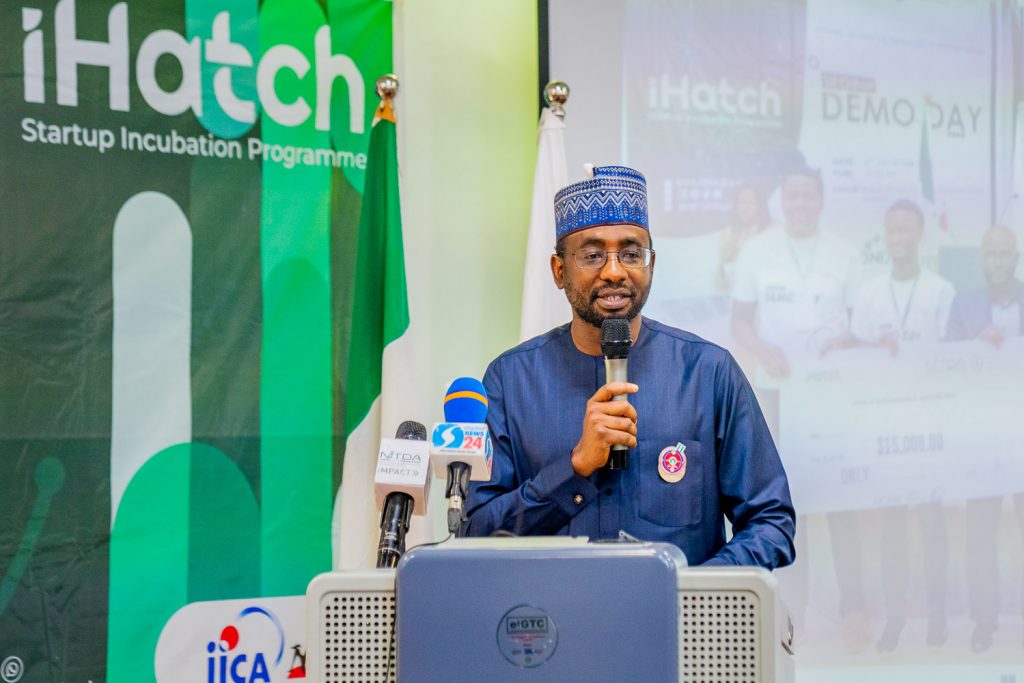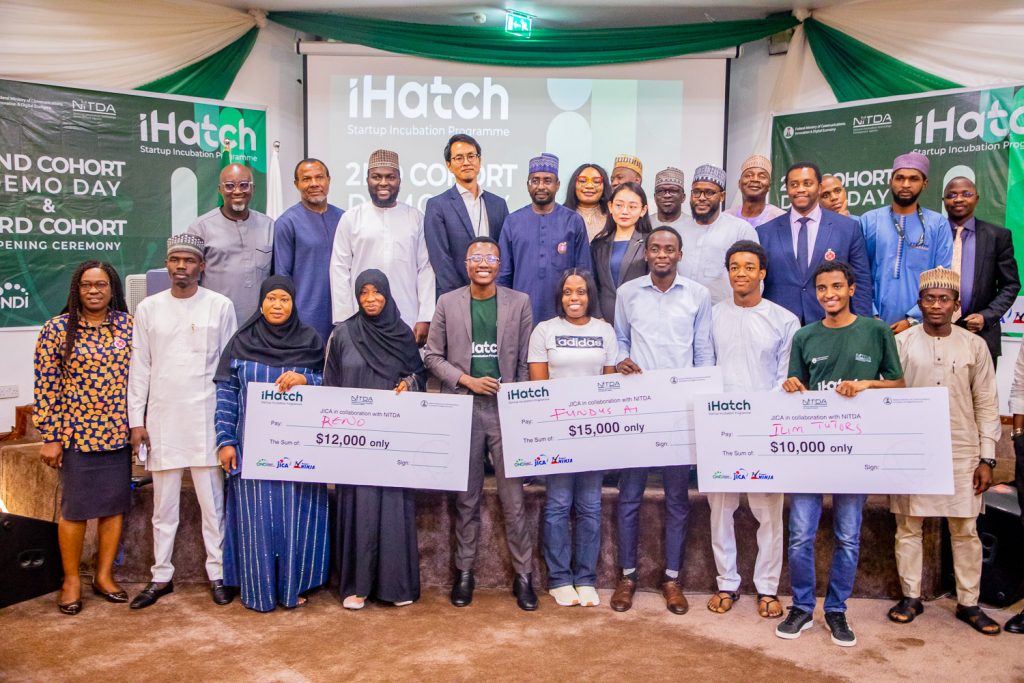Opinion
ANALYSIS: Suspension Of CJN Onnoghen: An Illegal Executive Coup Against A Recalcitrant Chief Judicial Officer By Jiti Ogunye
Published
5 years agoon
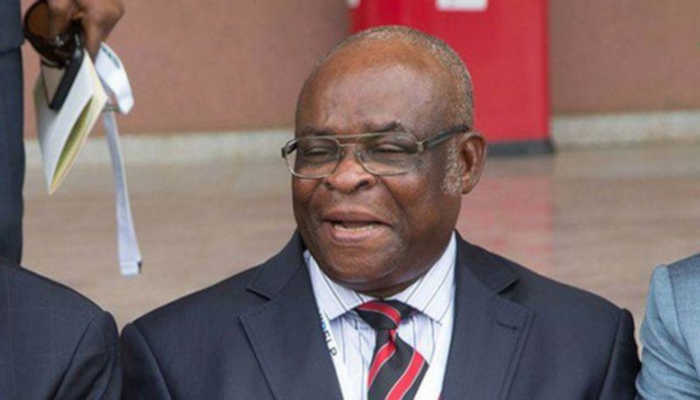
Eniola Olayemi
On Friday, January 25, 2019, the President of Nigeria , Muhammadu Buhari, suspended the Chief Justice of Nigeria, Justice Walter Nkannu Samuel Onnoghen from office, and immediately administered the judicial oath of office to the most senior Supreme Court Justice , next in rank to him, Justice Ibrahim Tanko Muhammed as the Acting Chief Justice of Nigeria.
Following that act, the president delivered a 25-paragraph address, akin to a coup speech, wherein he gave reasons for his action.
Essentially, the president explained that he was swiftly executing an order ex-parte ( that is, a one sided order procured without notice to, and the knowledge of the “suspended” CJN or his lawyers) of the Code of Conduct Tribunal (CCT), made and dated the 23rd day of January, 2019.
The order mandated him to suspend the CJN from office, pending the final determination of his trial at the CCT, and swear in the Justice of the Supreme Court next to him in rank, as an acting CJN.
The president further explained that sequel to the filing of corruption related charges against the CJN by the Code of Conduct Bureau (CCB) before the CCT and the commencement of his “trial “for gross violations of the provisions of the Code of Conduct for public officers, as stipulated in the Constitution of Nigeria, the CJN, instead of resigning his position took steps to frustrate his trial.
The CJN had been accused in the charges of receiving into and retaining in many banks accounts huge sums of money in foreign and local currencies, without disclosing them in his asset declaration forms and documents submitted to the CCB.
Unusual Speed
On January 7, 2019, the CCB received the petition against the CJN and between that date and 14th January, 2919, treated the petition and filed charges against the CJN, leading to his expected arraignment.
Many were shocked by the speed of that process, making many to wonder whether that speed did not signify that the FGN was coordinating the plot to remove the CJN from office.
The publicised demand of the Federal Executive Branch of Government for the resignation of the CJN from office , and the hollow and flat statement made by Vice President, claiming the President was not aware of the travail of the CJN before he was charged were pointers that the Buhari Administration was the resolute and implacable force behind the effort to remove the CJN from office.
When the CJN was confronted with the particulars of his infractions, upon the receipt of a petition from an NGO that submitted same, calling for his probe and prosecution, he made a ‘confession’.
In a a written statement that he volunteered, he admitted the ownership of the bank accounts and the sums therein contained, but claimed that he forgot to declare the bank accounts.
In the face of these damning confession, the president stated that Nigerians had expected the CJN to resign his office.
But instead of doing that, a team of senior lawyers working with him had obtained a number of orders from the courts to frustrate his trial.
It was in consequence of these orders that the Executive had to act.
It sought an order to suspend the CJN from office and upon the order being granted by the CCT, acted swiftly to suspend the CJN from office.
Divided Public
As it has now become the pattern, public opinion on the action taken against the CJN by the president is sharply divided.
A section of the public is of the view that the president acted illegally and unconstitutionally. They cite the provisions of Section 292 of the Constitution, which guarantees security of tenure for judicial officers, especially the CJN.
By this, he cannot be suspended or removed from office without the recommendation of the NJC and the 2/3 concurring approval of the Senate.
The other section hails the action of the President, contending that it is premised on a valid and subsisting order of the CCT, which has not been set aside, and which is incumbent on the President to enforce.
This section of opinion believes that the action of the President addresses the substance of the allegation of corrupt practices against the CJN, the tackling of which is being frustrated by the resort to technicalities and procedural niceties of law, a slavish adherence to the labyrinth of the due process of law, and treading of the laborious path of the rule of law.
Informed View
Faced with the divided, nay partisan opinion on the matter, patriots, lovers of democracy, believers in the rule of law and abhorrers of corrupt practices in our public life must take an informed and well considered view on the far- reaching and unprecedented step the Executive Branch of Government has taken.
While isolated (and we say not pervasive) cases of corrupt practices in the judiciary must be combated assiduously by our anti-corruption agencies under the Executive Branch of Government, Nigerians must decry the procedure adopted by the Muhammadu Administration.
Because of wrong procedure, the suspension is patently illegal and unconstitutional. It is disingenuous for anyone to argue to the contrary.
The suspension, which the Administration argues emanates from an order of the CCT is no more than a premeditated executive act dressed up in a quasi judicial cloak to give it legitimacy.
It was akin to what the military regime of General Bademasi Babangida did while fishing for judicial pretexts to stop the holding of the June 12 1993 Presidential Election, and annul it altogether.
It used its proxies to procure orders of injunctions from Hon Justice Bassey Ikpeme and Hon. Justice Dahiru Saleh of the Abuja High Court to stop the holding of the election and when the election was held, to stop the counting and release of the results.
This was in spite of the fact that the decree guiding the transition to civil rule programme had prohibited the granting of such orders, which could truncate the conduct of the election!
And it is puerile to argue that the mode of suspending or removing the CJN from office, as clearly defined by the Constitution can be circumvented by reliance on the provisions of Section 11 of the Interpretation Act, Cap 123, Vol. 8, LFN, 2004, an inferior statute, compared to the Constitution, the Supreme Law of the land.
The act of the Buhari Executive cannot be justified by invoking the provision of the Interpretation Act.
The precedent of the unconstitutional and wicked ill treatment meted to Justice Isa Ayo Salami, erstwhile President of the Court of Appeal by the Goodluck Jonathan Presidency, cannot be used as justification.
Incidentally, the senior lawyers that colluded with the Goodluck Jonathan Administration then to traduce and harangue Hon. Justice Isa Ayo Salami, CFR, and cruelly and crudely abort his presidency of the Court of Appeal are now the in the CJN Onnoghen’s corner, mouthing “the rule of law“ , “due process of law” , “judicial independence“, and decrying an alleged descent into fascism.
Political Game Play
Apparently, the executive branch of the government desired the ouster of the CJN from office.
To actualise the objective, it worked closely with a shadowy NGO to dredge up CJN Onnoghen’s infractions of provisions of the Code of Conduct for Public Officers. Many of these infractions predated the appointment of Justice Onnoghen as the CJN in 2017.
But there was no political exigency then for the use of the discovered and known transgressions of the CJN. The motive for using the allegationsnow is the feared harm the judiciary that is presided over by the CJN could do to the political interests of the ruling party, especially regarding pre-election cases and election petitions.
The CJN is facing an indefensible and shameful allegation of corruption against him , an allegation which warrants that he resigns from office, without waiting for his suspension from office by the Executive Branch of Government. But if the truth must be told, the reasons for the action of the Executive are beyond the fight against corrupt practices in the Judiciary.
The constitutional path to be charted to legally suspend or remove a CJN from office is luminously delineated by the Constitution.
What the Law Says
By virtue of Section 292(1)(a)(i) of the Constitution, the CJN cannot be removed from his office or appointment before his retirement age ( or suspended from office while the real intention is to secure his removal ) except by the President, acting on an address supported by two thirds majority of the Senate.
The NJC, by virtue of paragraph 21(b) of Part 1 of the Third Schedule to the Constitution of the Federal Republic of Nigeria, 1999 ( as amended ) recommends to the President the removal from office of certain category of judicial officers including the CJN , and exercises disciplinary control over them. Problematic? Of course, yes.
This is because regulators are being impracticably saddled with the power to regulate themselves. But that is the path for the removal or suspension of the CJN from office as provided by the Constitution!
Section 18, Part 1 of the Fifth Schedule to the Constitution defines the power of the CCT. In particular, Section 18 (2) stipulates the punishments which the CCT may impose upon conclusion of trial. They are : (a) vacation of office or seat in any legislative house as the case may be; (b) disqualification from membership of a legislative house and from the holding of any public office for a period not exceeding ten years; and (c) seizure and forfeiture to the State of any property acquired in abuse or corruption of office.
Instructively, the CCT is not vested with any power under the Constitution or the Code of Conduct Tribunal Act to order the Executive Branch of Government to suspend a public officer who is undergoing trial before it, from office, pending the conclusion of trial, as the CCT has purportedly done.
Also instructive is the fact that being a quasi criminal tribunal, the rules of procedure of the CCT is the Administration of Criminal Justice Act, a criminal procedure act, under which an ex parte or interlocutory order, analogous to an order of injunction obtainable in civil proceedings (under the civil procedure rules of our courts) may not be validly sought or granted.
What the Executive Branch of Government has done in the circumstances, therefore, was to force the matter of the desired removal of the CJN from office.
The Federal Government knew there were constitutional blockades against its desired removal of the CJN from office.
It recognized that FRN V NGANJIWA, 2018, 4 NWLR (Pt. 1609), 301 at 341 and 349, is a caselaw obstacle. But it was determined not to be restrained or frustrated by the rule of law.
Dangerous Precedent
The suspension of the CJN should, therefore, not be cynically and mischievously tied to the quest to preserve the rule of law, as the Executive has done. What the Executive has done is an inconsiderate abuse of power.
It erodes the independence of the judiciary.
It creates a scary precedent allowing the Executive Branch of Government, acting by itself or through selected surrogates or proxies, to file a petition before the CCB and casually and interminably saunter into the CCT to obtain an ex parte order against a judge, suspending him from office, pending the determination of the charge that is filed against him or her by the CCB or the conclusion of his trial by the CCT.
If this precedent were to become a permanent rule of law, the security of tenure that is granted to judicial officers under the Constitution will become tenure of insecurity” for judicial officers.
The legal profession in Nigeria, Bar and Bench must, however, accept that in many ways, some of its members, including senior lawyers, have contributed immensely to the burgeoning of corrupt practices in the legal profession, and to the counterfeiting of the rule of law.
While many were complaining about the haste with which the Onnoghen ouster project was being prosecuted by the Executive Branch of Government, a desperate Chief Justice Onnoghen, with the assistance of an equality desperate team of lawyers stormed two courts (Federal High Court and the National Industrial Court) on Monday the 14th of January, 2019 to procure orders restraining the CCT from proceeding with the arraignment or trial of the CJN.
The cases were filed on that day, processed, assigned and heard. The case before the National Industrial Court was filed by an NGO, and not the CJN, who, in law, is the only one who has the locus standi to institute an action relating to his appointment, employment as a judicial officer or office in an industrial court.
Being an industrial court, the primary litigants in that court are employees, employers, trade or labour unions, and employers associations. Not any busy body.
And yet both the Bar and Bench continue to admonish against abuse of processes of our courts.
As if that anormaly was not bad enough, following the commencement of proceedings before the CCT and arguments on the issue of service, appearance of the CJN and challenge to the jurisdiction of the Court, the CJN immediately approached the Court of Appeal seeking an order to stay the proceedings of his dawning arraignment and trial before the CCT, without waiting for the resumption of proceedings before the CCT on Monday 28th January, 2019.
The CCT had adjourned the continuation of hearing of the matter from the 22nd January to the 28th of January, 2019.
Unfortunately, contrary to the decision of the Supreme Court, on the 24th of January, 2019, the Court of Appeal granted an order in favour of the CJN staying the proceedings of the CCT, until 30th of January, 2019, thereby, in a way, provoking the Executive to intervene by effecting the order of the CCT directing it to suspend the CJN.
In Saraki v FRN 2016, 3 NWLR, Pt 1500,531 at pp 579 ; paras E-H; 581 paras F-G; and pp 583 -584, paras H-A , the Supreme Court held that the nature of the jurisdiction of the CCT is a quasi criminal jurisdiction, and that the rule of procedure applicable in the proceedings conducted before the CCT is the Administration of Criminal Justice Act. In Metuh v FRN, 2017, 11 NWLR , Pt. 1575, 157, at pp. 176-177, paras G-B; 179, paras A-C, E-F, ; 180, paras C-E ; 181-182, paras G-C ; and 183 , paras C-E, the Supreme Court held that under Section 306 of the Administration of Criminal Justice Act , 2015 , a trial court ( and afortiori an appellate court ) lacks the power to stay proceedings of criminal trial ( and a trial before a court of quasi criminal jurisdiction, if we need to add).
Looking Inward
In the handling of anti corruption cases and political cases ( suits emanating from conduct of primaries of parties and election petitions) , members of the legal profession continue to face justifiable blames and accusations.
The recent proclivity of our courts to grant orders and deliver judgments preventing a political party from holding its primaries and nullifying entire primaries conducted in states , thus preventing the party from fielding candidates in the upcoming general elections, has only added to the perception that the Judiciary is toeing a path of war against that political party and its interests.
We had not expected that while exercising its judicial power in respect of testy and difficult intra-party congresses and primaries for selection of candidates, the Judiciary will place a blanket ban on a political party not to field candidates in an election, thereby giving a technical victory to other political parties ahead of the election.
Such decisions do not only affect the party at the receiving end of such an order, but also implicate the constitutional right of voters to elect candidates of their choice, since their preferred candidates and party may be those barred from participating in the election.
Decisions barring parties from fielding their candidates, which are hailed by some as the triumph of the rule of law is, therefore, an invitation to judicial instability, as political power wielders will escalate their use of the Judiciary as a field to wage their power struggle and supremacy battles.
In the face of assault, contempt and provocation, the Judiciary is not expected always to resort to retribution and vengeance. It can truly do justice according to law, while extricating itself from a path that may lead to its being carelessy, recklessly and unfairly branded as a politically partisan umpire.
Nigerians can then imagine that the Muhammadu Buhari Administration that once had described the Judiciary as “it’s headache” could quickly in the prevailing circumstances have developed a persecution complex, fearing that it may suffer irreparable judicial decimation in the elections petitions that may arise from the forthcoming elections, if there was no ‘intervention’ in the Judiciary, and CJN Onnoghen was left in the saddle.
The fact that beneficiaries of certain political and anti corruption cases that were decided by the Judiciary, and their very familiar lawyers are now the vociferous defenders of the Judiciary against a “rampaging and dictatorial“ Executive Branch of Government is a further “proof” which the Onnoghen ouster conspiracy will celebrate as the evidence of judicial partiality and lack of independence under Chief Judgeship of Hon. Justice Onnoghen.
Looking Ahead
In order to save the Judiciary from further assault and embarrassment, and Nigeria from further international humiliation, a number of urgent steps must be taken by the Judiciary, the Executive Branch of Government and the legal profession.
The President must withdraw his purported execution of the order of the CCT suspending CJN Onnoghen from office, and swearing in Hon. Justice Ibrahim Tanko Muhammed as the Acting CJN of Nigeria.
This must be done immediately to stabilise the failing health of the Supreme Court that must have been occasioned by the act of the President.
Hon. Justice Walter Samuel Onnoghen must immediately resign from the office of the Chief Justice of Nigeria.
His reputation as a judge and as the head of the Nigerian Judiciary has been irreparably damaged, and his clinging to judicial office will not serve any useful purpose at this time.
His attempt to shield himself in office as exemplified by the inexplicable panicky indefinite postponement of the meeting of the NJC on 15th January , 2019, thereby robbing the NJC of its earliest opportunity to discuss the issue of his charge before the CCT is not helping him.
If anything, it portrays him, very unfortunately, as a person who is determined to cling to judicial office while the Judiciary is engulfed in crisis, flowing from issues relating to his alleged ethical infirmities.
The President of the Nigerian Bar Association, who is also facing a criminal prosecution by the Federal Republic of Nigeria (EFCC) should either step down from the presidency of the NBA or recuse himself from the membership of the NJC, pending the conclusion of the criminal charge against him.
Even when his presumption of innocence is conceded, this is the only way to guarantee that his representation of the NBA in the NJC is not used and surbodinated in the prevailing circumstances to the pursuit of his self interest to have himself discharged and acquitted.
The NJC must meet immediately to accept the resignation of Honorable Justice Onnoghen, and forward same to the President; and recommend a new Chief Justice of Nigeria to the President for a due appointment, with the approval and confirmation of the Senate.
In the meantime, the President will now be in a position to properly exercise his powers under Section 231(4) of the Constitution to appoint an Acting CJN in the person of Hon. Justice Ibrahim Tanko Muhammed.
The NBA and members of the legal profession must be mobilised not only to condemn the Executive for its acts of interference in the Judiciary, but also to compel Hon. Justice Onnoghen to resign as the CJN with immediate effect.
The unwitting impression the legal profession creates when it condemns the Executive without demanding for the resignation of the CJN is that it is protecting the CJN and shielding him from facing the consequences of alleged involvement in corrupt practices .
In addressing the issues that the actions of the Executive have raised, state actors and stakeholders in the Judiciary and outside it must ensure that the Judiciary is not further politicised or divided along ethnic or religious lines.
Finally, the current debacle rocking the Judiciary must be resolved to preserve and grow Nigerian constitutional democracy and rule of law and intensify the fight again corruption in Nigeria’s public life.
Jiti Ogunye, a public interest attorney, commentator, and author, is the legal adviser to Premium Times.
You may like
-


Osinbajo Has Betrayed Yorubas, Says Afenifere
-


APC Said Stone Us If We Fail After Two Years
-
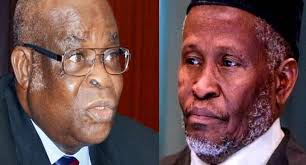

NJC Sets Up Panel To Probe Onnoghen, Acting CJN
-
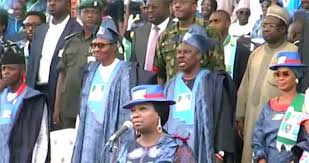

Oshiomhole Pelted With Stones, As Security Men Shield Buhari At Ogun Rally
-
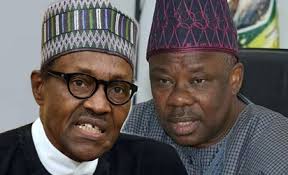

Amosun Campaigns For Both APC And APM At Buhari’s Campaign Rally
-


Buhari Expresses Hope In Resolving Zamfara APC Crisis
Opinion
NiMet’s Renewed Collaboration With Agriculture Ministry Is Good For The Nigerian Economy
Published
2 weeks agoon
May 6, 2024NiMet’s Renewed Collaboration With Agriculture Ministry Is Good For The Nigerian Economy
By Dr. Uche Nworah
The Federal Ministry of Agriculture and Food Security is a Ministry of the Federal Government of Nigeria that has the mandate to ensure food security in crop, livestock and fisheries.

The ministry is also tasked to stimulate agricultural employment and services, promote the production and supply of raw materials to Agro- allied industries, provide markets for the products of the industrial sector, generate foreign exchange and aid rural socio-economic development throughout Nigeria.
The Nigerian Meteorological Agency (NiMet), is a Federal Government of Nigeria agency charged with the responsibility to advise the Federal Government on all aspects of meteorology. NiMet is also tasked to project, prepare and interpret government policy in the field of meteorology; and to issue weather (and climate) forecasts for the safe operations of aircrafts, ocean going vessels and oil rigs.
The Nigerian Meteorological Agency (NiMet), and the Federal Ministry of Agriculture and Food Security have in the past made moves to strengthen their existing relationship towards improving agricultural production and food security in Nigeria. The Ministry and NiMet had signed an MoU on the 3rd of March, 2022, to collaborate in a lot of areas including development of a dash-board for early warning systems, capacity building for staff of the Ministry and other stakeholders on accessing and interpreting information on meteorological parameter changes, and the provision of agro-meteorological advisory services to farmers on specific agricultural commodities. It would seem as if things quietened down after the MoU was signed.
However, at a joint press briefing on NiMet’s 2024 Seasonal Climate Prediction (SCP), at the instance of the Honourable Minister of Agriculture and Food Security, Senator Abubakar Kyari, on Tuesday, 16th April, 2024, the Honourable Minister and the Director General, Chief Executive Officer of NiMet, and Nigeria’s permanent representative with World Meteorological Organization (WMO), Professor Charles Anosike, resolved to strengthen the relationship and make it stronger. The Honourable Minister said at the press briefing; “Your presence here today, at our headquarters, marks another milestone in the deliberate and desirable collaboration and co-operation between our Ministry and your agency. Over the years, critical sectors of the economy, such as aviation, maritime, and agriculture, have come to rely on the Seasonal Climate Prediction published by NiMeT usually in the first quarter of the year. The reliability of the Seasonal Climate Prediction is indicated by increased recourse to the weather advisories contained therein”.
The Honourable Minister also said that NIMET’s Seasonal Climate Prediction can assist in shaping agriculture in Nigeria with regard to information about the pattern and duration of rainfall across the country’s agronomic zones, when to grow and length of growing season, as well as dry spells that could occasion loss of agricultural investment, where remedial measures are not taken. This in turn helps to boost the adaptive capacity of farmers. Regrettably, there have been farming seasons in Nigeria when farmers did not take advantage of the institutional advice from NIMET, and on their own misread the rainfall pattern, only to face dry spells that invariably ruined their crops and livelihoods.
In his remarks, Professor Anosike thanked the Honourable Minister for his leadership and the kind gesture to strengthen the relationship between NiMet and the ministry. “NiMet wishes to build on the database of farmers that the ministry has. Already NiMet disseminates information about seasonal climate prediction through formal engagements with farmers , and through the media such as the BBC, social media, Radio Nigeria and through national television stations.
However, a lot of gaps still exist within the dissemination space. Our goal is to reach as many Nigerians as possible with timely, accurate and actionable weather and climate information as part of NiMet Early Warning Drive”
Continuing, Professor Anosike said; “Food security requires consistent collaboration with all stakeholders. The SCP as predicted are being manifested but the challenge remains disseminating the contents to over 70 million farmers in Nigeria. Farmers need to be equipped with information and other resources to make climate resilient decisions”.
It is noteworthy and encouraging that weeks after the joint press briefing between the Federal Ministry of Agriculture and Food Security and NiMet, there are evidences of the renewed collaboration. This is positive and will benefit the Nigerian economy. Knowledge is power and if Nigerian farmers have weather and climate information translated in their local languages, they will be able to make climate resilient decisions such as knowing when to plant, what species of plants and seeds to plant and when to harvest to achieve greater yield.
The 2024 Seasonal Climate Prediction (SCP) released by NiMet provides an outlook of climate variables to help improve decision-making across all sectors of the economy. NiMet’s SCP for 2024 which was originally released in February 2024, forecasts normal on-set of rains over the northern states.Borno, Abia and Akwa Ibom states are predicted to have early on- sets. An early end to the season is predicted for parts of Yobe, Jigawa, Sokoto, Kebbi, Kano, Kaduna, Plateau, Nasarawa, Taraba, Gombe, Bauchi, Cross River, Ebonyi, Ogun and Lagos states.
A late secession is predicted over the southern states of Bayelsa, Rivers, Akwa Ibom, Ondo, Ekiti and part of Edo, Delta, Ogun, Oyo, Kogi, Kwara, FCT, Niger and Kaduna states.
Day and Night time temperatures for January to May is predicted to be warmer than normal in most parts of the country. Also, most of the North is anticipated to be cooler in March.
The Ministry and NiMet have re-intensified efforts at disseminating NiMet’s seasonal climate prediction (SCP), using FRCN network service, local radio, local and national press, national and local television. They are also using social media platforms. Applying the multi-step information flow model will require social media savvy stakeholders picking up the information online and sharing same to the farmers in their various communities.
A critical aspect of the dissemination is the physical downscaling of the SCP information to farmers in the various communities. This will require the support of the various states ministries of agriculture and NGOs operating in the agricultural space. They should support current downscaling efforts by the ministry and NiMet. From the schedule released by the Federal Ministry of Agriculture and Food Security, and NiMet, downscaling of SCP information to farmers in the six geopolitical zones have been scheduled as follows; Ondo (13th May), Imo (15th May), Delta (17th May), Niger (22nd May), Sokoto (4th June) and Borno (6th June). Farmers, civil society organizations, states ministries of agriculture, the media and other stakeholders can help in sensitizing the farmers to attend on the dates stated for their zones.
This initiative by the two MDAs is viewed as a positive step towards enhancing food security in Nigeria. It will empower our farmers, and has the capacity to mitigate the perennial challenges of climate variability. It will at the same time contribute towards sustainable resilience in the agricultural value chain.
The full SCP report can be downloaded from www.nimet.gov.ng. The report is also available from the Federal Ministry of Agriculture And Food Security Abuja, and State Ministries of Agriculture.
Dr. Nworah, a public affairs commentator wrote from Lagos.
Opinion
America, Iran and the abuse of democracy, human rights, by Hassan Gimba
Published
2 weeks agoon
May 6, 2024America, Iran and the abuse of democracy, human rights, by Hassan Gimba
“One of the shrewdest ways for human predators to conquer their stronger victims is to convince them steadily with propaganda that they are still free.” N. A. Scott, American author.
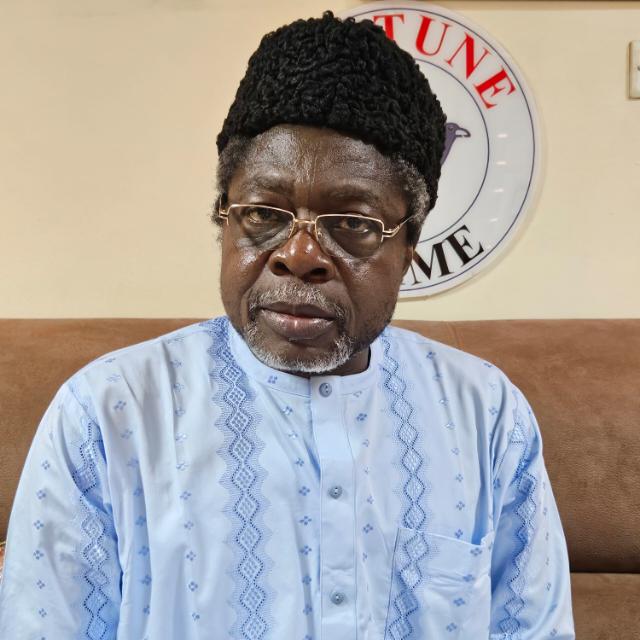
Every human being currently living on earth came to this world and saw the United States of America posing as the cradle of democracy, a bastion of freedom and a citadel of human rights.
For those of us in Africa, especially West Africa, and particularly those along the coastline, that America ruptured family cohesion, ties and lineage by forcefully taking our able-bodied forefathers and enslaving them, was either forgotten, forgiven, or both.
That after it was forced to abolish slavery by a changing world, it found a way to continue enslaving our able-bodied and intelligent youths in the name of providing greener pastures for them, which was either overlooked, not realised, or both.
As time went on, that it labelled those who wanted the best for their people as communists and demonised them, creating a bipolar world was either accepted as gospel truth by those who did not know the truth or parroted by those who were recruited to do that, or both.
That the then Eastern bloc (or communist/socialist countries), under the guidance of the Union of Soviet Socialist Republics (USSR), and its star boy, Fidel Castro of Cuba, all lined up to fight apartheid for African freedom was either lost on us or remained unappreciated, or both.
That Fidel Castro’s Cuba fought enslavers out of Angola for Angolans to taste freedom, training African youths in its universities and supplying Africa with medical doctors and free drugs while we still preferred to rush to America where we paid for everything through the nose reflected our slave mentality or lack of capacity to embrace truth, or both.
Truth is, we all grew up looking up to Uncle Sam as someone who cared for us in the third world, even when it was propping up the apartheid regime in South Africa or being a pillar of support to Ian Smith in Rhodesia, now Zimbabwe (Southern Rhodesia) and Zambia (Northern Rhodesia). Many of us did not see anything wrong in its support for Joshua Nkomo against the pan-Africanist Robert Mugabe.
For a long time, America has been working on the psyche of youths, especially in Africa, the Middle East, Asia and the communist/socialist countries to make them see their society as primitive and America as modern. The youths see their cultures and traditions as backward and archaic, their religion as stories of old, and Western depravity as the new religion.
It found a way in 1989 to infiltrate and brainwash Chinese students to rise against their country, demanding “political and economic reforms and greater respect for human rights”. The protesters gathered in Tiananmen Square in central Beijing, where they were forcefully evicted by military units, who killed a lot of them.
Tiananmen Square, or Tian’anmen Square, is a city square, measuring 765 x 282 metres, in the city centre of Beijing, meaning “Gate of Heavenly Peace”. The square contains the Monument to the People’s Heroes, the Great Hall of the People, the National Museum of China, and the Mausoleum of Mao Zedong, who proclaimed the founding of the People’s Republic of China in the square on October 1, 1949. It has great cultural significance in Chinese history.
America and its Western allies and propaganda machines did not allow what happened in China to be swept under the carpet or forgotten easily. It kept hammering on China’s “evil of repression”, that it emasculated and silenced the voice of the voiceless because that’s what students are. It told the world that China was an enemy of freedom, free speech, free association and democracy which it proclaimed as the only acceptable world order, despite its dalliance with repressive, autocratic and monarchic regimes, around the world.
Now fast-forward to 2024 and the pinching shoe is in America’s feet. Its students in no fewer than 15 universities and counting, with Columbia University in the lead, are protesting with the battle cry “Free, Free Palestine” for the freedom of Palestine that has been under Israel’s subjugation for decades.
America, the self-acclaimed doyen of freedom of association and speech, the guardian angel of democracy, is cracking down on the students for freely associating and using free speech to seek the freedom of another country. So far, scores of them have been arrested, some suspended, and some dismissed outright, while lecturers have been threatened with sack if they showed any sort of support to the students’ cause.
But that will hardly deter academics used to free speech as a first nature. One professor in the university bravely declared: “This is about a genocide being carried on with American money and with American weapons, against a people enduring generations of occupation.”
In a cheeky, and poignant, role reversal, Iran, which had suffered American instigation of its youths over time and had to deal with as it deemed fit, called on the US not to jeopardise democracy, freedom of association and free speech.
Shiraz University, a globally ranked university in Iran, just announced that it will grant scholarships to the students of American and European universities who have been expelled for supporting Palestine. It is also going to hire professors who have been fired or threatened with sacking for their stance towards Palestine.
Before the breeze blew and we saw the anus of the fowl, this was what America was doing to others all over the world – instigating youths against their fatherland, and when the country attempted to rein in its citizens, they would cry foul. They will then dole out scholarships, grants or work and Green Cards to those who fought against their country and its system.
In the words of Samuel P. Huntington, an American political scientist and academic, “The West won the world not by the superiority of its ideas or values or religion…but rather by its superiority in applying organised violence. Westerners often forget this fact; non-Westerners never do.”
Now America is receiving a dose of its medicine and it has failed to behave better than those countries it accused of truncating democracy, free association, free speech and human rights abuses.
Truth, it is said, is the only one that lasts. Falsehood and hypocrisy are just as temporary as the time it will take to blindfold the people.
What America is showing the world today is exactly the echo of the time immemorial words of Abraham Lincoln, its 16th president, who issued the Emancipation Proclamation that declared slaves forever free: “You can fool some of the people for all of the time, and all of the people for some of the time, but you cannot fool all of the people for all of the time.”
Hassan Gimba is the Publisher and Editor-in-Chief of Neptune Prime.
Opinion
IHATCH: JAPAN GOVERNMENT TASK TO LEVERAGE NIGERIA’S YOUTHFUL POPULATION- DG NITDA
Published
6 months agoon
December 3, 2023
By James Ishaku
As part of the current administration of President Bola Tinubu’s commitment towards creating meaningful opportunities for Nigerian youths, the Director General Of the National Information Technology Development Agency (NITDA), Kashifu Inuwa CCIE has called on the government of Japan to leverage on the youthful population through strategic talent partnership that will nurture and build a workforce that can be exported.
The DG made the call at the Ihatch startup incubation programme 2nd cohort demo day and 3rd cohort opening ceremony organised by the subsidiary of the agency, Office for Nigerian Digital Innovation (ONDI), in partnership with Japan International Corporation Agency (JICA) in Abuja.
Inuwa noted that the ihatch 5-month free intensive incubation programme executed by the ONDI and hosted within the National Centre for Artificial Intelligence and Robotics (NCAIR) is designed to help Nigerian tech entrepreneurs refine their business ideas through a series of coaching, lectures, and booth camps to develop scalable and adaptable business models that willfocus on youth, innovation, entrepreneurship, and technology.
He added that the incubation programme will be held simultaneously in Abuja, Lagos, Port Harcourt, Gombe, and Kano and JICA has agreed to extend the Fourth Cohort across each of the 36 States and the FCT. This is to enable wider reach and to stimulate the startup ecosystems across the States.
The DG stated that not fewer than 1,218 applications were received for the Second Cohort and the number was pruned down to 8 startups, comprising 16 persons, a Founder and Co-Founder for each startup, after undergoing levels of rigorous selection process conducted by a panel of judges, comprising experts in diverse areas of technology and innovative entrepreneurship.
He explained that the selection process assessed the startups’ ideas based on the criteria of profitability, scalability, social impact, idea technique, competitive advantage, experience, and a clearly defined future roadmap.
Inuwa further revealed that a total of 11,183 applications were received from across the 6 geopolitical zones for the Third Cohort. This culminated in the selection of the top 8 startups, comprising 16 founders in total that will participate in the Third Cohort that was launched.
He added that 16 startups that participated in the first and second cohorts of the iHatch incubation programme have moved on to achieve remarkable success in the areas of job creation, funding, participation in events, and valuable partnerships which have created a combined total of 179 direct jobs in the span of agriculture, health, education, and e-commerce sectors.
The DG further asserted that apart from the total grant of US$45,000 (US$15,000 each) for Proof of Concept (POC) to the top 3 startups in the first cohort, some of the startups have raised some funding through other sources. Xolani Health (a health tech startup from the first cohort) secured a grant worth US$155,000, BetaLife (a health tech startup from the first cohort) secured an angel investment of US$60,000, Gifty (an e-commerce startup from the second cohort) got a grant of USD$8,000 while two other startups from the first and second cohorts respectively, raised a combined total grant of US$6,000.
Inuwa affirmed the agency’s commitment to working with relevant stakeholders and partners towards the successful implementation of the Nigeria Startup Act (NSA) which will accelerate innovation and provide much-needed jobs for our teeming youths. Leaving nothing to chance in our resolve to nurture the entrepreneurial spirit in our youth to catalyze the Nigerian digital economy to the next level.
The Honourable Minister, Federal Ministry of Industry, Trade and Investment, Doris Nkiruka Uzoka-Anite, represented by National Coordinator, National Talent Export Programme, Dr Femi Adeluyi, applauded NITDA for the various initiatives and programs put in place for the advancement of the tech ecosystem in the country.
Anite noted that the NITDA DG at the Digital Nigeria International Conference 2023 edition harped on the need for Nigeria to become the talent destination of the world where countries will come to seek a workforce that will work with them towards achieving their goals and objectives.
She added that “technology is a pivotal tool in all aspects of life which cannot be overemphasized and the green transition scoreboard global total has reached about $7.13 trillion for export and about $6.6 trillion for importation, the important aspect is that 54% of these activities is digitally edible and prepares people to be effective and efficient in the different sector of the economy is laudable”.
The Minister also appreciated JICA for its relentless efforts toward the advancement of the tech ecosystem in the area of automobile, development, training, scholarships, interventions and a lot more which has impacted the citizens directly or indirectly.
The Ambassador of Japan to Nigeria, Matsunaga Kazuyoshi, represented by Yuzurio Susumu Chief of Nigeria Office in his remarks stated that Nigeria is the most popular country in Africa and the heart hub of entrepreneurship activities aimed towards the advancement of the country.
He added, “With all the challenges faced by insecurity, and limited infrastructures in the country, Nigerian startups are demonstrating remarkable creativity and resilience in developing solutions that other critical social issues in areas such as education, transportation, healthcare and finance”.
He added that the present administration has identified the transformation potential of startups and digitization making it a key factor in diversifying the Nigerian economy from its dependence on oil.
The Ambassador pointed out that startups are seen as a catalyst for business transformation, bringing fresh ideas, innovative technologies and new employment opportunities. Japan has the longest history of technological innovation and entrepreneurship has a significant role in supporting the Nigerian system.
Among those who attended were representatives from both the private and public and the top three (3) startups emerged with cash prices to Fundus AI 1st postion $15,000.00, Reno 2nd postion with $12,000.00 and Ilim Tutors 3rd postion $10,000.00 respectively.
Trending
-

 News5 years ago
News5 years agoBreaking: ‘Penalty’ Crooner Small Doctor Caught in Possession of Fire Arms
-

 News5 years ago
News5 years agoTiffany Trump Is Dating a Millionaire Michael Boulos From Nigeria
-

 News5 years ago
News5 years agoPDP Set To Cause Panic Days To Polls: FG
-

 News5 years ago
News5 years agoINEC Engages EFCC, FIU In Tracking Campaign Funding
-
News2 years ago
INEC Publish Final List of Candidates For 2022 Osun Governorship Poll
-

 Politics5 years ago
Politics5 years agoPDP Alleges Plot by APC, Presidency to Detain Its Leaders
-

 Politics5 years ago
Politics5 years agoOsinbajo Has Betrayed Yorubas, Says Afenifere
-
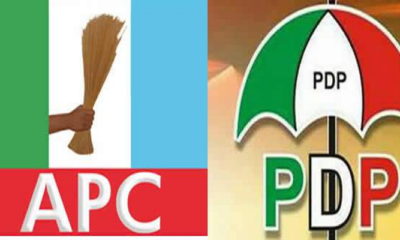
 Politics5 years ago
Politics5 years agoLagos Commissioner Decamps To PDP






